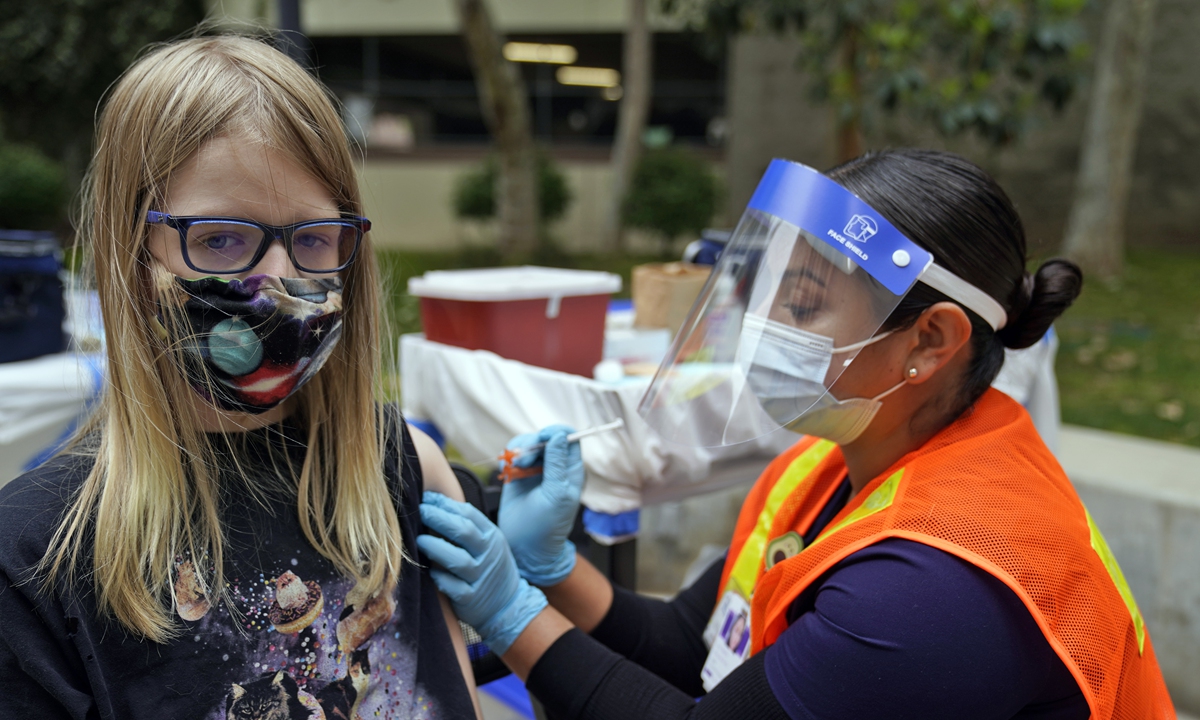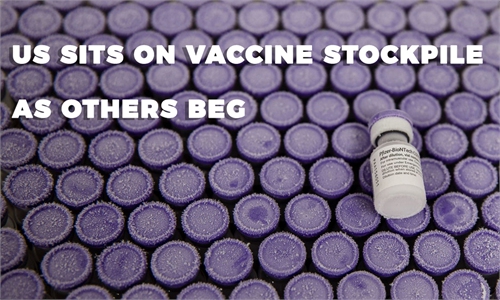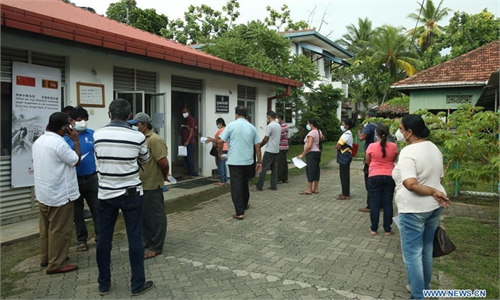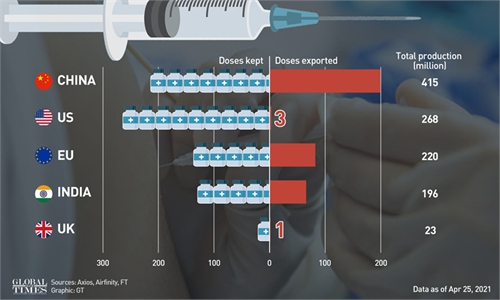Despite half million death toll, misinformation still fueling concerns
Fertility fears harm US vaccine uptake
False claims that COVID-19 vaccines can cause infertility are discouraging Americans from receiving the shots and leaving health professionals to persuade patients that scare stories they have read online are unfounded.

With vaccine uptake already slowing, the claims are a threat to the Biden administration's goal of achieving herd immunity in the US. Research published earlier in May showed about two-thirds of those who said they will "definitely not" get a vaccine were worried about the impact on their fertility.
And about half of unvaccinated people say they are concerned "the COVID-19 vaccine may negatively impact their fertility in the future," Ashley Kirzinger, associate director of public opinion and survey research at Kaiser Family Foundation, a health policy nonprofit that conducted the study, told AFP. Some 50 percent of women and 47 percent of men aged 18 to 49 who had not yet been vaccinated say they have such fears.
The initial exclusion of pregnant women from COVID-19 vaccine trials created space for falsehoods, and the latest effort by anti-vaccine groups coincides with fewer people stepping forward for inoculations.
"They are largely just recycling things that scare people about previous vaccines onto these new vaccines, whether or not it makes scientific sense," said Devon Greyson, health communications professor at the University of Massachusetts Amherst.
The messages are targeting women because "fertility is just one of those things that we react so strongly to, and it's so personal," Greyson added. "So if you're looking for a bogeyman, 'It will make you infertile' is a really good one."
Katharine O'Connell White, associate professor of obstetrics and gynecology at Boston University School of Medicine, agreed, saying that "concerns about fertility with the vaccines strike at the heart of what it means to be a woman, for a lot of women."
The American College of Obstetricians and Gynecologists, the American Society for Reproductive Medicine, and the Society for Maternal-Fetal Medicine said in a joint statement that "there is no evidence that the vaccine can lead to loss of fertility."
Despite more than half a million Americans dead from COVID-19, vaccine hesitancy persists and it has left physicians having to assure patients that their fears about not being able to have children are misplaced.
"I tell my patients all the time, print out whatever you find that makes you nervous, makes you scared. And let's talk about it," White said.
But most vaccine skeptics do not believe their doctor or do not seek their advice.

Oliver Comfort, 12, gets a shot of the Pfizer COVID-19 vaccine at the First Baptist Church of Pasadena Friday, May 14, 2021, in Pasadena, California, the US. Photo: VCG
Among the worst examples of such misinformation spread on Facebook are that immunized men can render unvaccinated women sterile through sex, that 97 percent of vaccine recipients will become infertile and that the jabs could be "sterilizing an entire generation."With vaccine uptake already slowing, the claims are a threat to the Biden administration's goal of achieving herd immunity in the US. Research published earlier in May showed about two-thirds of those who said they will "definitely not" get a vaccine were worried about the impact on their fertility.
And about half of unvaccinated people say they are concerned "the COVID-19 vaccine may negatively impact their fertility in the future," Ashley Kirzinger, associate director of public opinion and survey research at Kaiser Family Foundation, a health policy nonprofit that conducted the study, told AFP. Some 50 percent of women and 47 percent of men aged 18 to 49 who had not yet been vaccinated say they have such fears.
The initial exclusion of pregnant women from COVID-19 vaccine trials created space for falsehoods, and the latest effort by anti-vaccine groups coincides with fewer people stepping forward for inoculations.
"They are largely just recycling things that scare people about previous vaccines onto these new vaccines, whether or not it makes scientific sense," said Devon Greyson, health communications professor at the University of Massachusetts Amherst.
The messages are targeting women because "fertility is just one of those things that we react so strongly to, and it's so personal," Greyson added. "So if you're looking for a bogeyman, 'It will make you infertile' is a really good one."
Katharine O'Connell White, associate professor of obstetrics and gynecology at Boston University School of Medicine, agreed, saying that "concerns about fertility with the vaccines strike at the heart of what it means to be a woman, for a lot of women."
The American College of Obstetricians and Gynecologists, the American Society for Reproductive Medicine, and the Society for Maternal-Fetal Medicine said in a joint statement that "there is no evidence that the vaccine can lead to loss of fertility."
Despite more than half a million Americans dead from COVID-19, vaccine hesitancy persists and it has left physicians having to assure patients that their fears about not being able to have children are misplaced.
"I tell my patients all the time, print out whatever you find that makes you nervous, makes you scared. And let's talk about it," White said.
But most vaccine skeptics do not believe their doctor or do not seek their advice.



